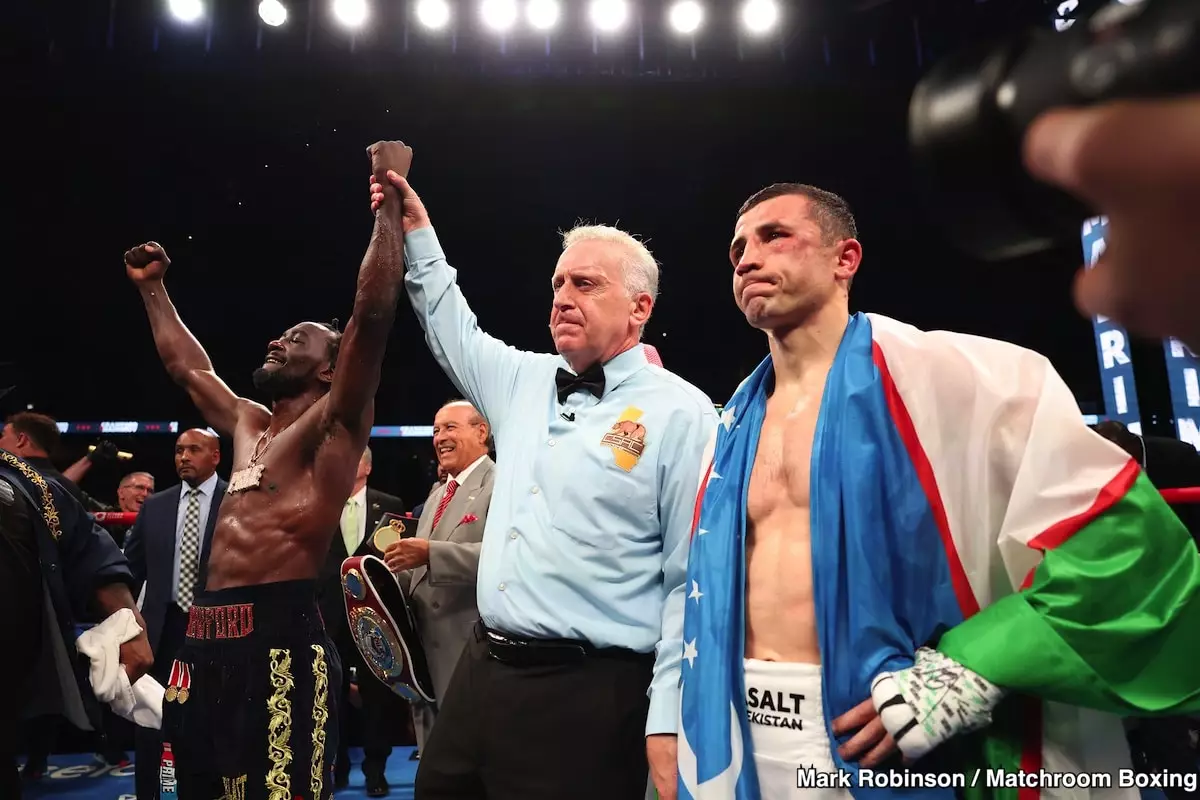Terence Crawford has long been a divisive figure in the world of boxing. Recently, he took to social media to express his frustration regarding the skepticism surrounding his career after 17 years in professional boxing. While he claims to have been consistently “doubted,” this persistent doubt may stem from his choices and the caliber of his opponents. A closer inspection of Crawford’s fight history reveals a pattern that raises questions about his willingness to take risks and eagerly seek out high-stakes matchups.
Crawford’s career trajectory has often featured a cycle of predictable fights where he enters the ring as the overwhelming favorite. This has led some fans and commentators to label his matchups as lacking excitement, often questioning the legitimacy of the challenges he chooses to face. Unlike some contemporaries who relish the idea of stepping into a 50-50 fight or facing the best in their respective division, Crawford’s path has been more cautiously mapped out, prioritizing favorable conditions. This approach may explain why fans groan at announcements of his bouts, often summarizing them as “just another tomato can.”
The reality is that boxing fans gravitate towards elite competition. They yearn to see their favorites challenged in ways that push their limits and reveal their true potential. By consistently engaging with perceived lower-tier opponents, Crawford risks diminishing the excitement surrounding his fights. Just as sports fans idolize athletes who take risks to achieve greatness, they are less likely to rally behind fighters who appear eager to avoid adversity.
The Canelo Dream: A Question of Ambition
Crawford’s aspirations toward a colossal payday against Canelo Alvarez illustrate both ambition and entitlement. He eyes a monumental clash with Alvarez at 168 pounds but seems unwilling to first conquer challenges presented by formidable opponents in the junior middleweight division, such as David Benavidez or David Morrell. Critics argue that Crawford’s inaction regarding these potential matchups speaks volumes about his confidence and willingness to earn his place at that elite level rather than directly seek the golden handshake.
While Crawford may dream of facing a superstar like Alvarez, the absence of challenging bouts raises eyebrows. Fans often decry this mindset as lazy or entitled; they desire evidence of grit, determination, and sacrifice before handing over respect or accolades. If Crawford wishes to be taken seriously on the world stage, he must first prove himself against fighters who can genuinely elevate his status.
Crawford’s sporadic fight schedule—compounded by his recent struggles upon moving up to 154 pounds—has left his credibility hanging in the balance. Fans watched with concern as he barely edged past WBA junior middleweight champion Israil Madrimov in a narrow decision. Since that fight, inactivity has blurred the lines of Crawford’s legacy, creating uncertainty and disinterest among boxing enthusiasts.
It’s well understood that to thrive in the competitive landscape of boxing, one must stay active and continuously refine their skills. Rather than seeking opportunities against notable contenders, Crawford’s apparent complacency and choices may lead fans to reconsider their support for him. With great fighters, the spell of inactivity can lead to unforeseen consequences when they eventually return to the ring; they may find themselves out of sync with the sport’s ever-evolving dynamics and, perhaps more importantly, silently forgotten by the audience.
The Fan’s Perspective
Ultimately, perception is crucial in boxing, and it shapes how fans view the careers of their favorite fighters. The dissatisfaction surrounding Crawford speaks to a larger conversation about what it means to be respected in a sport that often emphasizes bold assertions over passive pretensions. If Crawford truly seeks to silence his doubters, he must evaluate not only the quality of his opponents but also his dedication to consistently challenging himself. True validation comes from a career full of extraordinary endeavors rather than a few financially motivated matches.
While Terence Crawford may claim that skepticism is rooted in age-old narratives of doubt, a more profound examination reveals that this doubt is often justified by his inactions and choices. A more proactive approach, along with a willingness to engage with elite competition, could pave the way for a legacy that satisfies both his ambitions and the community he cherishes, thus transforming doubt into respect.

